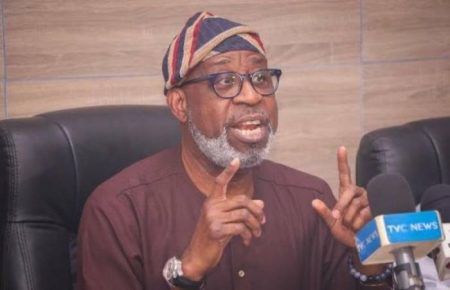01 June 2012, Sweetcrude, Abuja – For millions of Nigerians who have been anxious and impatient with the slow pace of things in the minerals and metals sector of the country over the decades, recent actions and pronouncements by the Federal government would appear to mirror that anxiety and impatience.
Of particular importance to many watchers of the sector, the Federal Government has recently unveiled an ambitious goal to develop coal as a fuel for coal fired power plants contributing 30 percent to power generation in the country by 2015 among other uses. This is part of the government’s Transformation Agenda Targets as regards solid minerals development, to be administered by the Ministry of Mines and Steel Development.
Other requirements of this agenda is the achievement of 30 percent compliance with global environmental best practices by the same 2015, the achievement of enhanced capacity to supply 50 percent skilled manpower required for all the segments of the minerals and metals sector by 2015. The Ministry is further tasked under this agenda with facilitation of the exploitation of bitumen to meet local demand and export by 2015, as well as to encourage export of value added minerals and metals related products.
The government has also set itself a target to achieve total compliance with and applications of all stipulations and provisions of the Nigerian Minerals and Mining Act 2007 or any subsequent legislative framework for the minerals and metals sector, and to facilitate the establishment of professional programmes by the Council of Nigerian Mining Engineers and Geoscientist (COMEG).
Speaking at the last Commonwealth Heads of Government and (CHOGM) in Perth, Western Australia in October last year, President Goodluck Ebele Jonathan underlined his administration’s plans to vigorously implement policies, programmes and projects that will ensure the rapid development of Nigeria’s solid minerals sector in the next four years in furtherance of its efforts to create more job opportunities for the country’s youth. He also assured the gathering that his administration had the political will and commitment to fully implement all the regulatory reforms required to facilitate the entrance of more investors to Nigeria’s mining sector.
At another interactive dinner with leading Australian mining and solid minerals investors, President Jonathan declared that he was passionately committed to the full development of Nigeria’s solid minerals sector because of its huge potentials for boosting the national economy. The President invited the leaders of Western Australia’s solid minerals industry to invest their resources, skills, expertise and technology in the development of Nigeria’s solid minerals sector. “You are well known for solid minerals and you will find a lot to do in Nigeria,” he told Australian businessmen.
Arc. Musa Mohammed Sada, the burly Minister of Mines and Steel Development upon whose shoulders lies the enormous task of executing the transformation agenda, does not prevaricate when he discusses the work that lies ahead, even as he details the major achievements recorded by the Ministry over the past year, beginning with the launching of the new Mineral and Mining Regulations in 2011 that guides the implementation of the Minerals and Mining Act of 2007, and ensures the orderly development of the sector.
He adds that in the area of geosciences data generation for the sector, the Ministry has completed the Airborne Magnetic survey of the entire, as well as completed the airborne radiometric survey of required areas. “Over the course of twelve months since this administration came on board, we have produced two database, 51 geological maps on scale 1:100,000 and 11 geological maps on scales 1:5,000 and 1:10,000. We have also produced 2,385 interpreted airborne geophysical maps covering 56 percent of Nigeria’s landmass, and carried out geochemical mapping of two Global Reference Network (GRN) cells in Niger and Kwara states bringing to six the total number of cells mapped.”
According to Sada, the Mining Cadastre Office established by the ministry has issued out 2,476 active mineral titles during the period under review compared to 666 issued out in the correspondent period thereby reducing, significantly, illegal mining activities. It has further recorded improved number of investors due to the transparent way titles are issued on “first come, first served” and the “use it or lose it” basis.
The net cumulative result of these reforms, he adds, is the creation of about 350,000 additional jobs created during the period under review. A lot the new jobs arose from the activities of newly registered artisanal and small mining operators as well as new cement plants that require additional limestone, gypsum, shale and clay as raw materials. “It is worth pointing out that we recorded an increase in mineral production by the sector due to increase in production of cement, ceramics, stone aggregates (granite), and others, as well as the general increase in mineral commodities,” Sada explained.
The Minister says that before the end of the year, government will seek to facilitate the constitution of the Board of Solid Minerals Development Fund that will in turn facilitate the the take-off of the Solid Minerals Development Bank. He adds that plans are also underway for the creation of at least five active Small Scale Mining Operations exploiting targeted strategic mineral resources.
“Government is presently engaged in the process of producing an action plan for mineral commodity in each local government of the Federation and implement the first phase of one project in each zone. This will boost small scale mining operations producing raw materials input for local industry resulting in more economic output, employment and revenue generation,” he states.
The Managing Director, SCC Construction Company, Mr. Levy Yuval, told Sweetcrude in an interview that Nigeria has a lot to gain from developing its solid mineral sector with its rich concentration of mineral deposits. According to him, “Nigeria is a country rich in natural resources and huge potentials which had less than 5 per cent utilisation at the moment. I believe there are lots of fields, ideas and new enterprises to seek and develop and I see myself as a representative of this machinery to develop the fields of the solid mineral and mining in Nigeria.” He lamented that one of the major challenges facing the sector was Nigeria’s over dependence on oil and reiterated the nation’s need to develop its solid mineral sector and depend less on it’s oil reserves.
Yuval’s sentiments were shared by Mr. Sunny Ekozin, National President of Progressive Miners Empowerment Association (PMEA). According to him, the sector lacks financial support and had for many years suffered from government neglect. He said it was gratifying to see the level of interest shown by the present government in developing the wealth in the sector. “When you neglect anything, it is bound to have reverberating effect. That was the unfortunate state we found the sector without any effort to ameliorate it. But, thank God, for the vigorous intervention of this administration, especially in the area of reforms that have been sustained in the sector. But, we still have a long way to go especially in the face of the dominance by the oil and gas industries in the economy.”
He adds that, “Let me tell you that, in most countries where oil is being produced, it tends to become a disease that often cripples other potential areas. Unfortunately, it is what has played out in Nigeria. The fact that oil wells have been fully developed has blindfolded both the government and the private sector to look at the alternative source of economic activities, and this has affected mining terribly in Nigeria.”
Ekozin said his association will continue to “conscientise both the government and the investors on the need to see the gold mines we are sitting on and how to use it for the
betterment of the economy. We cannot be sitting on huge wealth, particularly in the rural areas, and yet be talking of unemployment. As the country is battling with urban drift and other social problems, we need to develop this area to serve as a springboard to the solution of the myriads of economic problems confronting us as a nation.
“We cannot develop without the solid mineral products and Vision 20:2020 cannot be realised unless the potential of our local endowment are explored. You cannot develop while depending on foreign support. With the global economic recession going on, we need to look inwards and utilise the natural endowment to galvanise our economy.”
Government is confident that with on-going efforts to reform the sector and make it conducive for investment in mining technology and infrastructure, coupled with plans to organize artisanal and small-scale mining to use safe mining and mineral processing techniques, and the continued monitoring of the development and implementation of Community Development Agreements by mining operators to create socially responsive exploitation of mineral titles areas, the future of mining in Nigeria could only be brighter.




